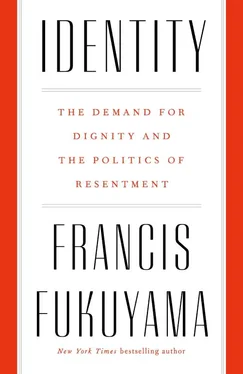In the United States there is a great deal of confusion over the term middle class , since a large majority of Americans like to categorize themselves as middle class, even when they are well-to-do elites or people who in Europe would be characterized as working-class or even poor. The most politically relevant group would be those in the third or fourth quintiles of the national income distribution, who are the most vulnerable to stagnation or downward mobility.
The Schengen zone overlaps with but does not completely correspond to either the EU or the eurozone; some EU countries such as Ireland and the United Kingdom opted out, while non-EU states such as Iceland and Norway are de facto parts of the zone.
As Lincoln said in his second inaugural address, “One-eighth of the whole population were colored slaves, not distributed generally over the Union, but localized in the Southern part of it. These slaves constituted a peculiar and powerful interest. All knew that this interest was, somehow, the cause of the war.”
The English language remains an important integrative characteristic of American identity, which is why bi- and multilingual programs in public schools have been controversial.
Francis Fukuyama, “The Populist Surge,” The American Interest 13 (4) (2018): 16–18.
Larry Diamond, “Facing Up to the Democratic Recession,” Journal of Democracy 26 (1) (2015): 141–55.
Francis Fukuyama, “The End of History?,” National Interest 16 (Summer 1989): 3–18; The End of History and the Last Man (New York: Free Press, 1992).
I am interpreting Hegel through the lens of Alexandre Kojève, who saw the evolving European Economic Community as the embodiment of the end of history.
Francis Fukuyama, The Origins of Political Order: From Prehuman Times to the French Revolution (New York: Farrar, Straus and Giroux, 2011); Political Order and Political Decay: From the Industrial Revolution to the Globalization of Democracy (New York: Farrar, Straus and Giroux, 2014).
I am grateful to those people who actually took the time to read my book. See in particular Paul Sagar, “The Last Hollow Laugh,” Aeon , March 21, 2017, https://aeon.co/essays/was-francis-fukuyama-the-first-man-to-see-trump-coming.
Please note that some of the links referenced throughout this work may no longer be active.
Seymour Martin Lipset Lecture; see Francis Fukuyama, “Identity, Immigration, and Liberal Democracy,” Journal of Democracy 17 (2) (2006): 5–20; Latsis lecture “European Identity Challenges,” given at the University of Geneva in November 2011, see “The Challenges for European Identity,” Global , January 11, 2012, http://www.theglobaljournal.net/group/francis-fukuyama/article/469/.
Samuel P. Huntington, The Third Wave: Democratization in the Late Twentieth Century (Oklahoma City: University of Oklahoma Press, 1991).
Steven Radelet, The Great Surge: The Ascent of the Developing World (New York: Simon and Schuster, 2015), 4.
For a comprehensive account of the growth of global inequality, see Branko Milanovic, Global Inequality: A New Approach for the Age of Globalization (Cambridge, MA: Belknap Press, 2016).
Diamond, “Facing Up to the Democratic Recession,” 141–55.
Ali Alichi, Kory Kantenga, and Juan Solé, “Income Polarization in the United States,” IMF Working Paper WP/16/121 (Washington, DC, 2017); Thomas Piketty and Emmanuel Saez, “Income Inequality in the United States, 1913–1998,” Quarterly Journal of Economics 118 (1) (2003): 1–39.
Viktor Orbán, “Will Europe Belong to Europeans?,” speech given in Baile Tusnad, Romania, July 22, 2017, Visegrád Post , July 24, 2017, https://visegradpost.com/en/2017/07/24/full-speech-of-v-orban-will-europe-belong-to-europeans/.
Rukmini Callimachi, “Terrorist Groups Vow Bloodshed over Jerusalem. ISIS? Less So,” New York Times , December 8, 2017.
Orbán, “Will Europe Belong?”
James D. Fearon, “What Is Identity (As We Now Use the Word)?,” unpublished paper, November 3, 1999, http://fearonresearch.stanford.edu/53-2.
Daniel Kahneman, Thinking, Fast and Slow (New York: Farrar, Straus and Giroux, 2013).
The Republic of Plato , trans., with notes and an interpretive essay, by Allan Bloom (New York: Basic Books, 1968), variorum sec. 439b–c.
Ibid., 439e–440a.
Ibid., 440a–b.
Ibid., 440e–441a.
For an account of how isothymia plays out in practice, see Robert W. Fuller, Somebodies and Nobodies: Overcoming the Abuse of Rank (Gabriola Island, British Columbia: New Society Publishers, 2003).
Robert H. Frank, Choosing the Right Pond: Human Behavior and the Quest for Status (Oxford: Oxford University Press, 1985), 7.
G. R. Elton, Reformation Europe, 1517–1559 (New York: Harper Torchbooks, 1963), 2.
Martin Luther, Christian Liberty , ed. Harold J. Grimm (Philadelphia: Fortress Press, 1957), 7–8.
Charles Taylor, Sources of the Self: The Making of the Modern Identity (Cambridge, MA: Harvard University Press, 1989), 18.
Elton, Reformation Europe , 196.
See Taylor’s Sources of the Self and Multiculturalism: Examining the Politics of Recognition (Princeton, NJ: Princeton University Press, 1994).
See Arthur M. Melzer, The Natural Goodness of Man: On the System of Rousseau’s Thought (Chicago: University of Chicago Press, 1990).
Jean-Jacques Rousseau, Oeuvres complètes de Jean-Jacques Rousseau , vol. 3 (Paris: Éditions de la Pléiade, 1966), 165–66. Author’s translation.
Ibid., 165.
Jean-Jacques Rousseau, Les rêveries du promeneur solitaire (Paris: Éditions Garnier Frères, 1960), 17. Author’s translation.
Charles Taylor, The Ethics of Authenticity (Cambridge, MA: Harvard University Press, 1992), 26.
Rousseau’s belief that sex was natural but not the family does not seem to be true of behaviorally modern human beings. It is true, however, of modern chimpanzees and may well have been true of the presumed chimplike progenitor of modern humans.
For a more detailed treatment of this topic, see Fukuyama, Origins of Political Order , 26–38.
Frank, Choosing the Right Pond , 21–25.
Alexandre Kojève, Introduction à la lecture de Hegel (Paris: Éditions Gallimard, 1947).
Читать дальше












